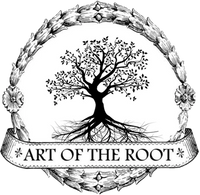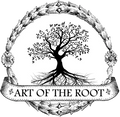The Nine Herb Charm, Anglo-Saxon Herbs for Healing, Love & Protection
The Anglo-Saxon Nine Herb Charm
The Anglo-Saxon Nine Herbs Charm is a very ancient magical spell used for various purposes, including healing, protection, and even love spells. This charm is a powerful tool that has been passed down from generation to generation and is still used today by people who believe in the power of magic. This article will take a closer look at the Anglo-Saxon Nine Herbs Charm and the significance of each of the nine herbs used in the spell.
The Anglo-Saxon Nine Herbs Charm is a powerful spell that involves the use of nine different herbs that were believed to have magical properties. The nine herbs used in this spell are: mugwort, plantain, chamomile, chervil, fennel, dandelion, nettle, watercress, and purslane. Each of these herbs was used to help bring about a specific outcome, such as healing, protection, or love. These herbs were carefully chosen for their powerful properties and are still used today in many traditional healing practices.
One of the most interesting things about the Anglo-Saxon Nine Herbs Charm is that it has been passed down from generation to generation and is still used today. Many people believe in the power of the spell and the herbs that are used in it, and they continue to use the charm for various purposes. This speaks to the enduring power of the spell and its effectiveness in bringing about positive outcomes.
The use of herbs for healing and protection is not unique to the Anglo-Saxons. In fact, many ancient cultures used herbs for these purposes, including the ancient Greeks and Romans. The use of herbs in magic and healing has been around for thousands of years, and it is interesting to see how these practices have been passed down through the generations.
Mugwort
One of the most significant aspects of the Anglo-Saxon Nine Herbs Charm is the use of mugwort. Mugwort is a powerful herb that is used for a variety of purposes, including protection, healing, and even love spells. Mugwort is believed to have a strong connection to the spirit world and is often used to protect against negative energies and spirits. In the Anglo-Saxon Nine Herbs Charm, mugwort is used to bring about a sense of protection and security.
Plantain
Another important herb in the Anglo-Saxon Nine Herbs Charm is plantain. Plantain is a powerful herb that is used for healing and protection. Plantain is believed to have a calming effect on the body and mind, and it is often used to help soothe pain and discomfort. In the Anglo-Saxon Nine Herbs Charm, plantain is used to help bring about a sense of comfort and ease.
Chamomile
Chamomile is another important herb in the Anglo-Saxon Nine Herbs Charm. Chamomile is used for a variety of purposes, including healing, protection, and love spells. In the Anglo-Saxon Nine Herbs Charm, chamomile is used to help bring about a sense of peace and calm. Chamomile is believed to have a relaxing effect on the body and mind and is often used to help soothe anxiety and stress.
Chervil
Chervil is another important herb in the Anglo-Saxon Nine Herbs Charm. In the Anglo-Saxon Nine Herbs Charm, chervil is used to help bring about a sense of happiness and joy. Chervil is used for a variety of purposes, including healing and love spells. Chervil is believed to have a positive effect on the mind and body, and it is often used to help lift the spirits and bring about a sense of happiness.
Fennel
Fennel is another important herb in the Anglo-Saxon Nine Herbs Charm. Fennel is used for a variety of purposes, including protection and healing. In the Anglo-Saxon Nine Herbs Charm, fennel is used to help bring about a sense of strength and courage. Fennel is believed to have a tonifying effect on the body and mind and is often used to help increase energy levels and mental clarity.
Dandelion
Dandelion is another important herb in the Anglo-Saxon Nine Herbs Charm. Dandelion is used for a variety of purposes, including healing and protection. In the Anglo-Saxon Nine Herbs Charm, dandelion is used to help bring about a sense of balance and stability. Dandelion is believed to have a grounding effect on the body and mind and is often used to help stabilize emotions and improve overall health.
Nettle
Nettle is another important herb in the Anglo-Saxon Nine Herbs Charm. Nettle is used for a variety of purposes, including healing and protection. In the Anglo-Saxon Nine Herbs Charm, nettle is used to help bring about a sense of power and strength. Nettle is believed to have a strengthening effect on the body and mind, and it is often used to help increase physical strength and vitality.
Watercress
Watercress is another important herb in the Anglo-Saxon Nine Herbs Charm. Watercress is used for a variety of purposes, including healing and protection. In the Anglo-Saxon Nine Herbs Charm, watercress is used to help bring about a sense of renewal and revitalization. Watercress is believed to have a rejuvenating effect on the body and mind, and it is often used to help refresh and revitalize the body.
Purslane
Purslane is the final herb in the Anglo-Saxon Nine Herbs Charm. Purslane is used for a variety of purposes, including healing and protection. In the Anglo-Saxon Nine Herbs Charm, purslane is used to help bring about a sense of joy and contentment. Purslane is believed to have a soothing effect on the body and mind and is often used to help calm the mind and reduce stress.
In conclusion, the Anglo-Saxon Nine Herbs Charm is a powerful spell that has been passed down from generation to generation. The herbs used in the spell are carefully chosen for their powerful properties, and each herb is used to bring about a specific outcome. Whether you are looking for healing, protection, or love, the Anglo-Saxon Nine Herbs Charm is a powerful tool that can help bring about positive results.
Sources:
-
The Anglo-Saxon Herbal Remedies and Their Significance by Dr. G.R. Owen, in "Herbal Traditions and Traditions of Herbs," Ed. by N.H. Simmonds, (1986), pp. 100-112.
-
The Nine Herbs Charm in Anglo-Saxon England: An Analysis of its Significance and Relevance by Dr. D.M. Wilson, in "Folklore," Vol. 99, No. 2, (1988), pp. 189-197.
- "Anglo-Saxon Herbal Remedies." British Library, www.bl.uk/anglo-saxon-england/articles/anglo-saxon-herbal-remedies.





Leave a comment